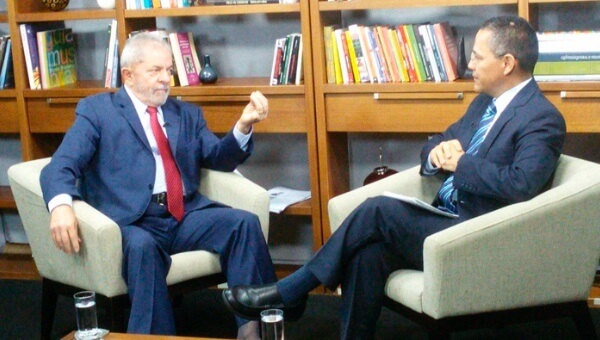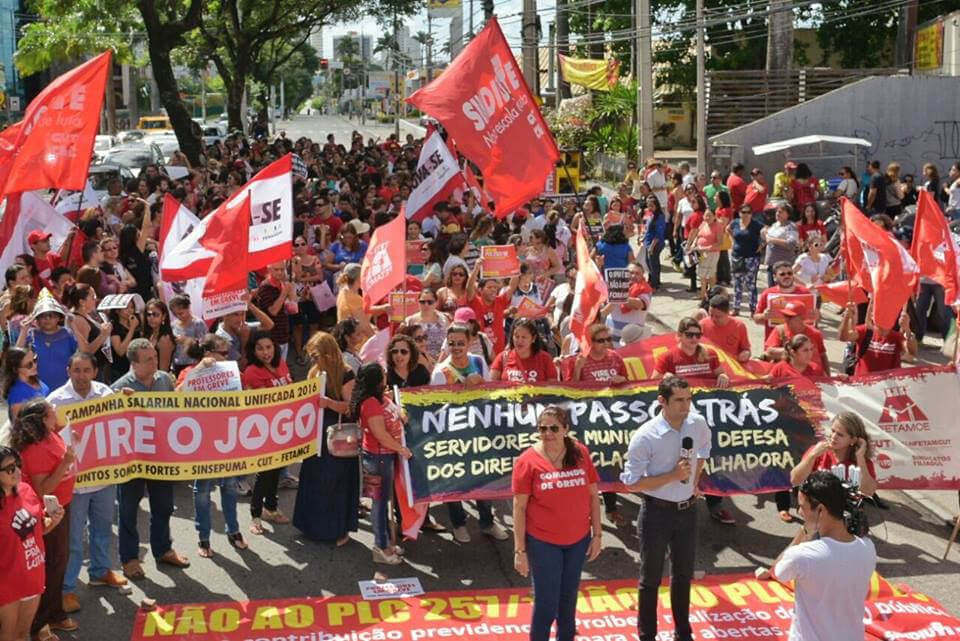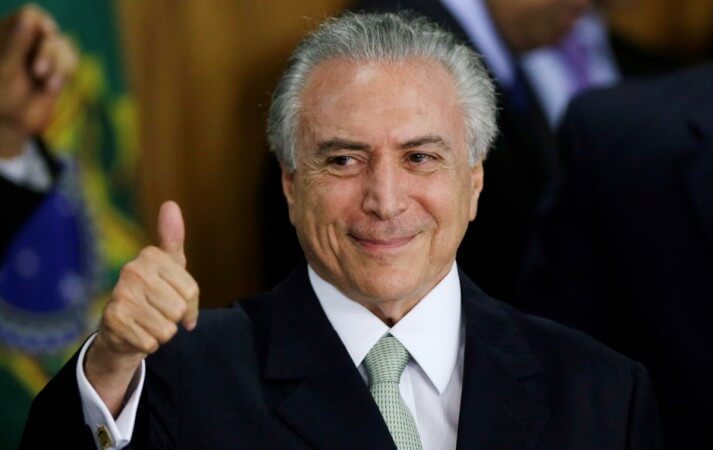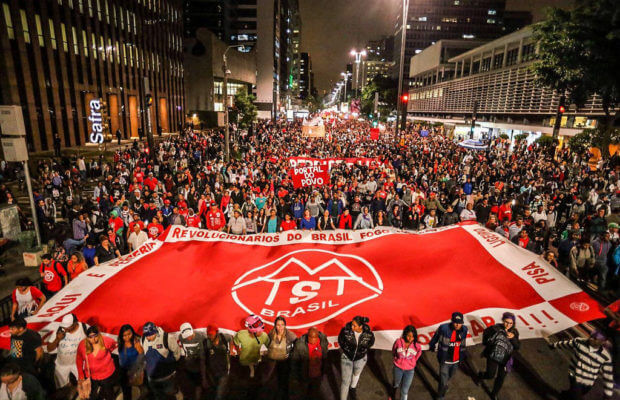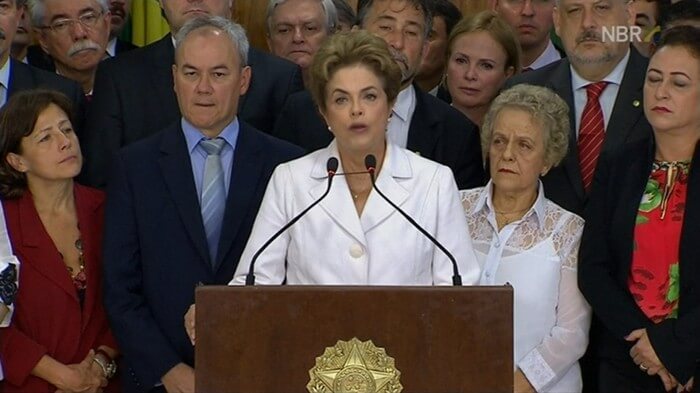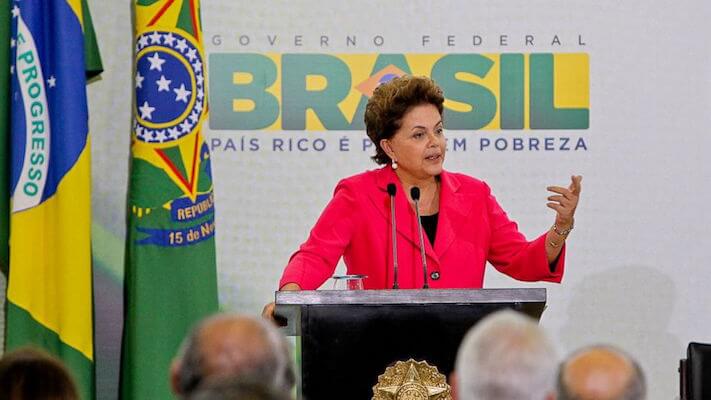By Fania Rodrigues and André Vieira
Glenn Greenwald is the journalist that was responsible for a series of articles that revealed to the world the espionage carried out by the US government through the NSA, the National Intelligence Agency. One of the spied people was the Brazilian President, Dilma Rousseff.
Born in the United States, Glenn is currently a foreign correspondent for the journal “The Intercept” in Rio de Janeiro and was the first journalist to interview Dilma after the voting of the impeachment process in the Chamber of Deputies, on April 17, 2016.
Brasil De Fato: The site Wikileaks has denounced that Brazil’s interim President, Michel Temer, was an embassy informant for US intelligence. What do you think about that relation?
Glenn Greenwald –When Wikileaks revealed those documents for the first time, 4 years ago, some articles were written in the journal Folha de S. Paulo and others. Back then, no one paid much attention to that because people didn’t care much about Temer. But now he is in the spotlight. Wikileaks affirms that Temer is spying on Brazil, along with the U.S. That document was handled in a very weird and suspicious way. I think that document raised the level of espionage or treason. I think those documents are very interesting because they prove that Temer has a very close relation with the US. There are many people that believe that the impeachment was voted to set Brazil apart from the BRICS. They want the country to be far from China and closer to the US. And in that document there is clear evidence that the interim President has a very close relation with the US. Actually, they were sending private information to a foreign government. I believe he should, at least, be investigated.
Brasil De Fato: What do you think about US attitude towards the impeachment process in Brazil?
Glenn Greenwald – US’ relation with the internal policy of Brazil is very sensitive because all the Brazilian people, or most of them, know that the US was linked to the Coup in 1964 and that it openly supported the dictatorship. When President Dilma gave an interview to Russia Today she said that there was no evidence that the US could be involved in the impeachment process. Today, I can say that certainly the US government has preferences over Temer’s administration rather than the one of the Workers’ Party.
Temer’s government offers much more benefits to the US: to US Banks, to the capital of Wall Street [the finance market]. Then, I think they might not be openly supporting the process but they are benefitting from it, sending clear signs that they won’t stop it. The day after the voting in the Chamber of Deputies, the opposition leader, Senator Aloysio Nunes traveled to Washington and met with high-ranking officials of the US government. He claimed he traveled to give information and to assure them that the process did not constitute a coup. But of course, when an opposition leader meets with members of the US government in Washington, in such an important and sensitive moment, suspicions of the role of the North American country in this process grow.
Brasil De Fato: What do you think about the coverage made by mass media in the impeachment process?
Glenn Greenwald – I have being doing reports in several countries in the last 8 years and I have never seen the kind of behaviour that mass media has had in Brazil. Three wealthy families own almost the entire communication system. All most of them were united against the Workers’ Party, against Dilma’s government, backing the impeachment. Journalists working in those medias are, almost unanimously, supporting this process. They are not working as journalists, they are not prioritizing a plurality of views. They are doing propaganda for the owners of these media to overthrow a government they don’t like.
They are working to establish a government that can be closer to their interests. To me, that’s a threat, not only to freedom of speech, but to democracy. These organizations have the responsibility of informing the people, but they are acting in the opposite way. They are broadcasting propaganda. The positive thing is that now, people can access internet and these organizations can’t have a total control over the information that the Brazilian people are receiving. Also, there are many foreign journalists in Brazil who can’t be bought and who are reporting on the lies that the impeachment leaders are spreading. Brazilians are receiving the most diverse information. I think that these organizations are partially losing the control they had had for a very long time.
Brasil De Fato: What’s your opinion on the recent mobilizations of the right in Latin America with the victory of Mauricio Macri in Argentina, the defeat of the left in Bolivia’s referendum and the blows against Fernando Lugo in Paraguay and Manuel Zelaya in Honduras?
Glenn Greenwald – We must make a distinction between these situations. The right won the elections in Argentina in a clean and fair manner. Also in Bolivia elections were held to decide whether Evo Morales should be elected again or not. The people can chose changes. But in countries like Paraguay or Honduras, as in Brazil and also in Venezuela, there is a new maneuver in which elected governments are being displaced by right politicians that were not elected by the polls.
We can observe these two movements played by the Latin American right. One is fair, because it happens through elections, and the other one is attacking democracy. We must consider these differences when we analyse the regional situation.
Brasil De Fato: What is your opinion on the impeachment process against Dilma Rousseff?
Now, it is very clear that the impeachment was not related to corruption. The Workers’ Party won four elections in a row, and the richest people, the most powerful people, didn’t manage to defeat the Workers’ Party within the democratic standards. Economic problems, in addition to Dilma’s unpopularity, served as an opportunity for them to finally remove the President and to overthrow the Workers’ Party out of the democratic process. That’s what the impeachment means: the richest fractions, the most powerful ones, exploiting the opportunity to change the government, to which they were not able to access through elections.
